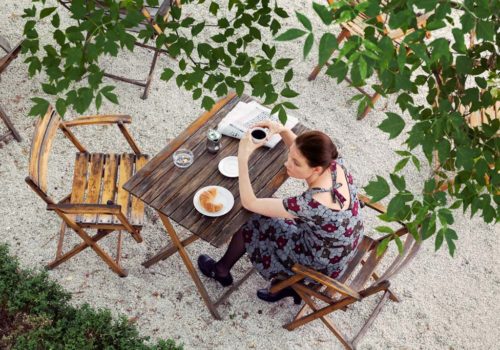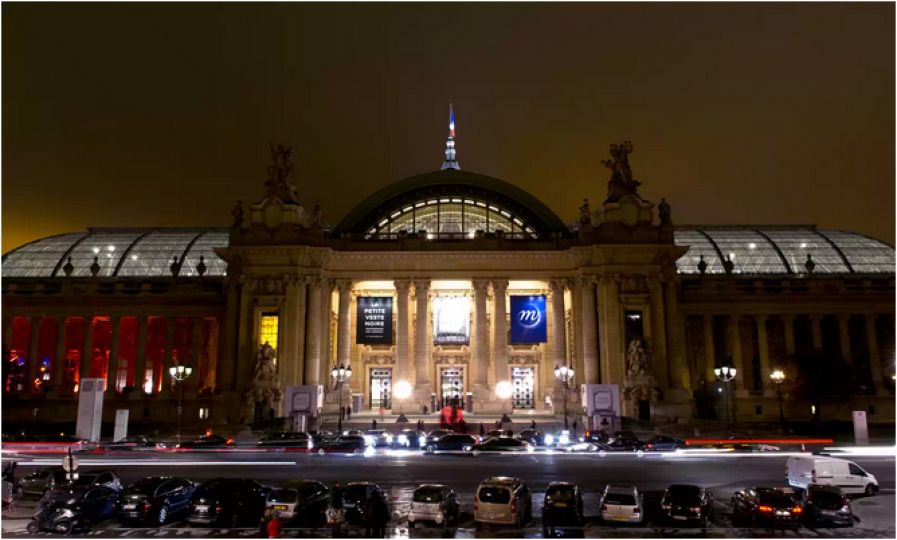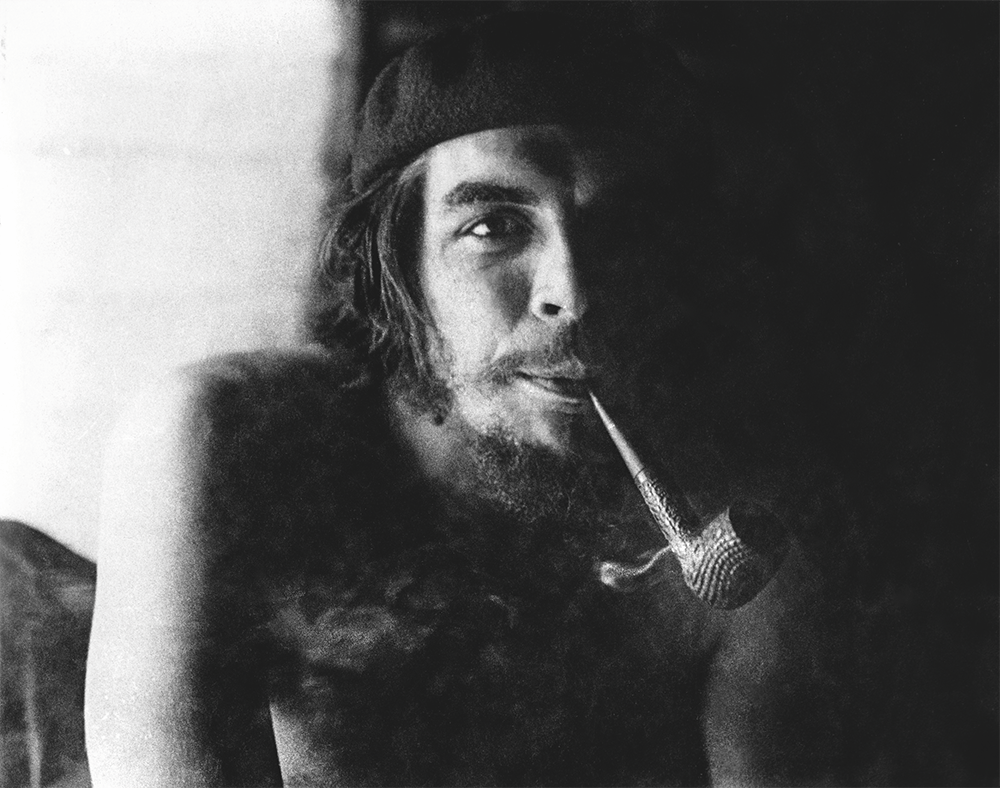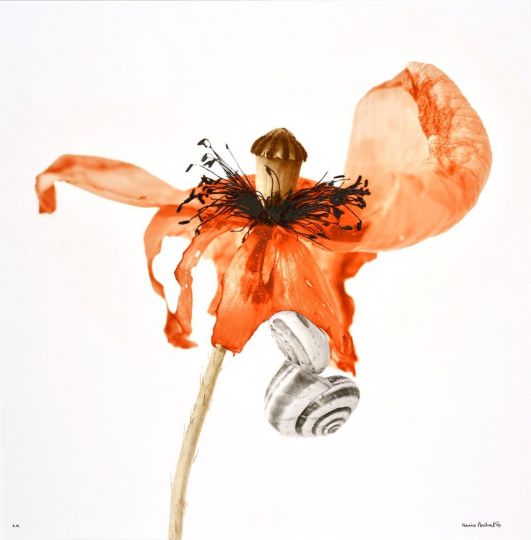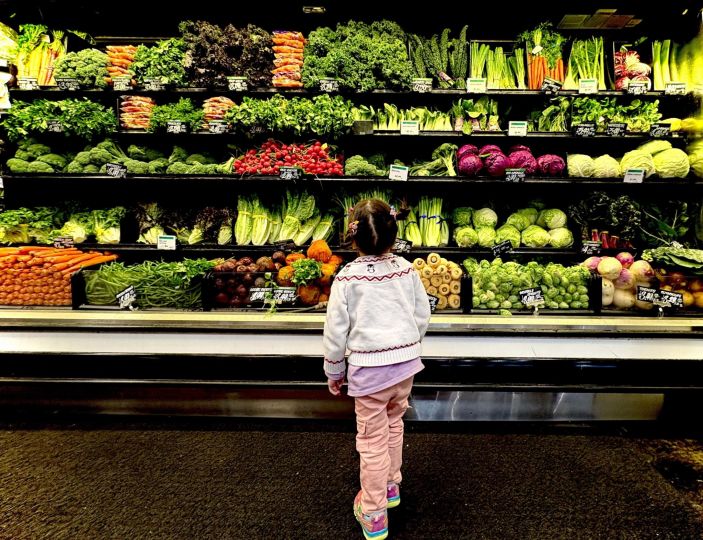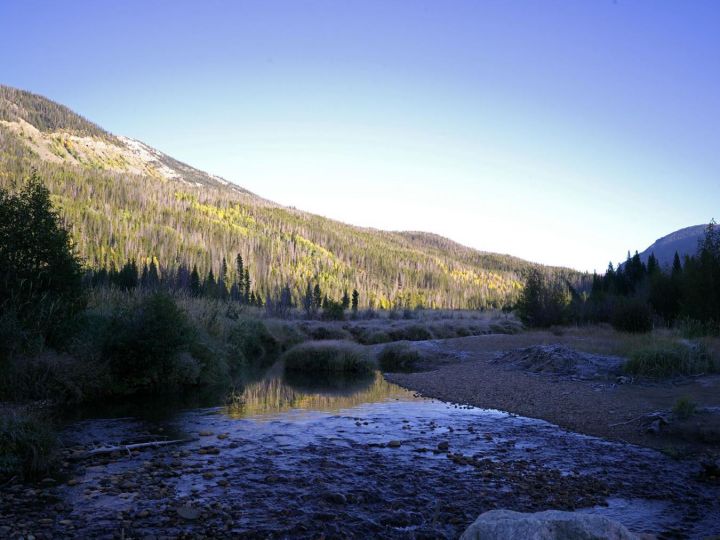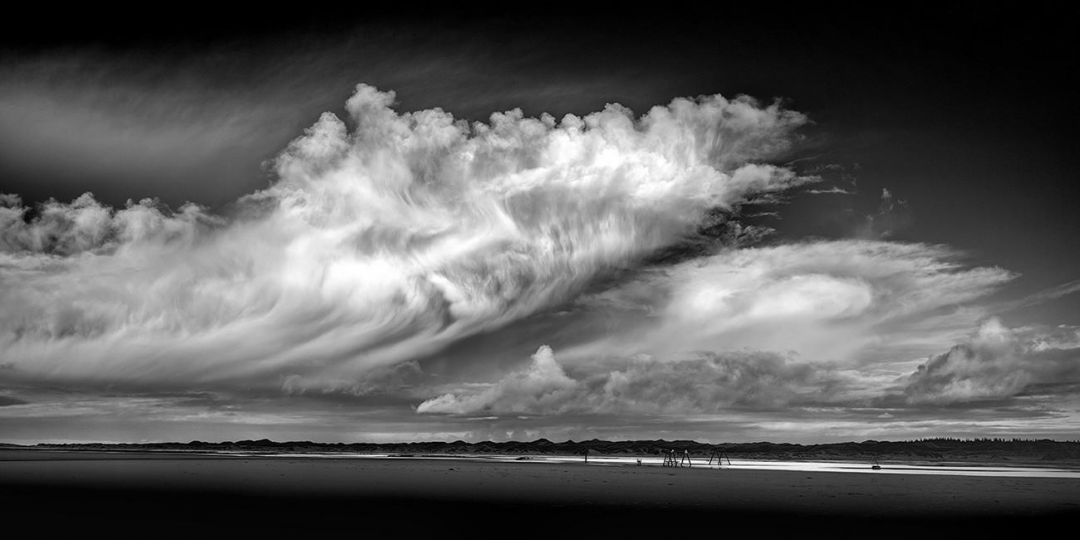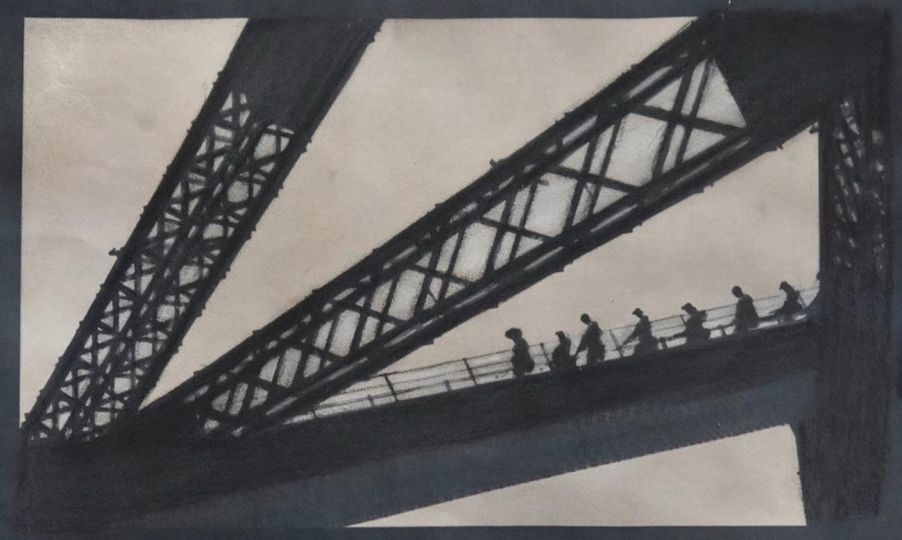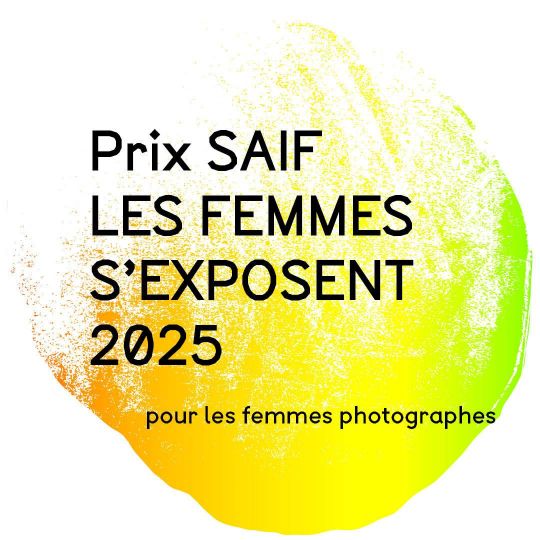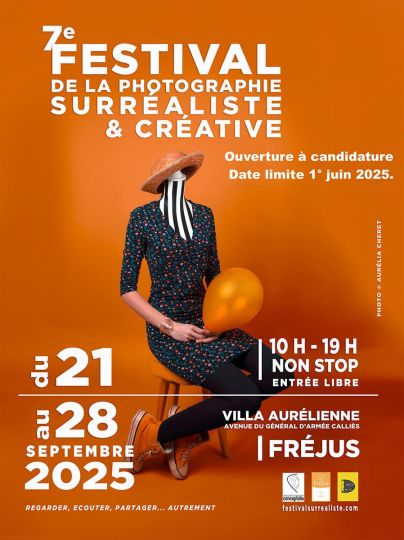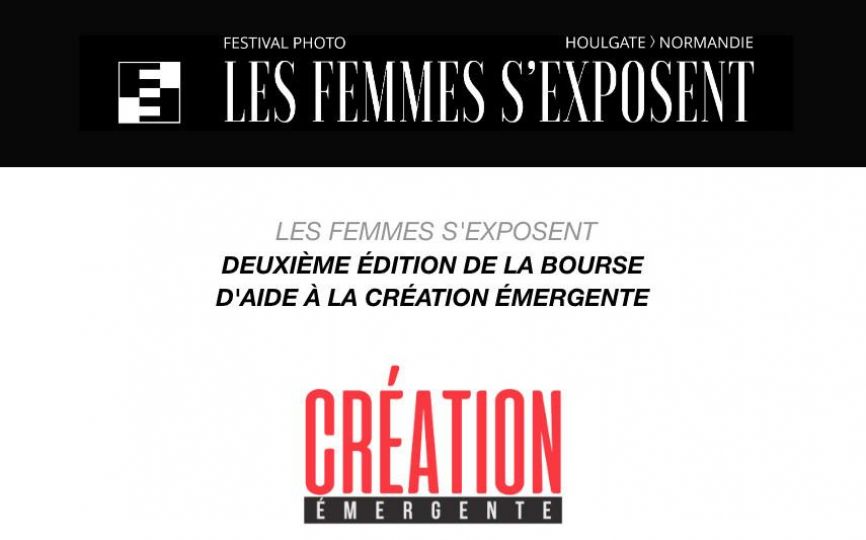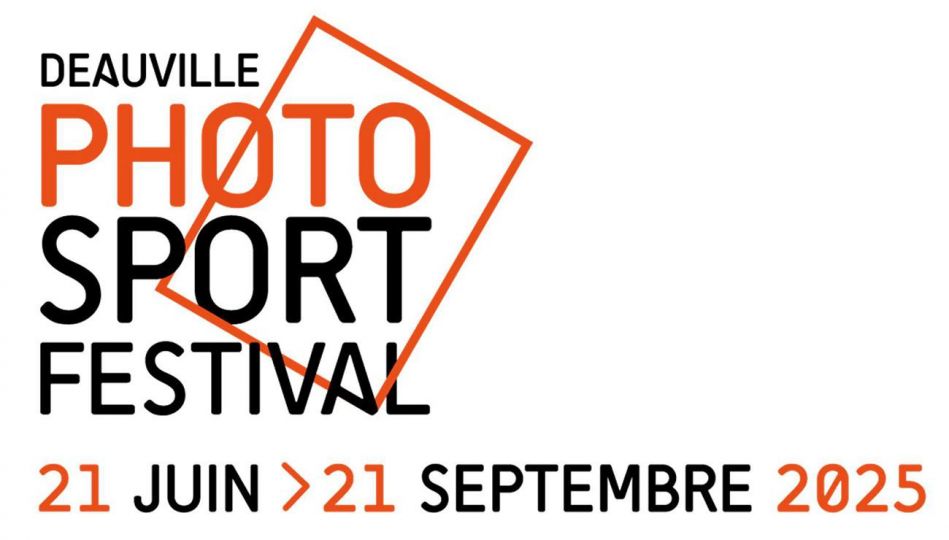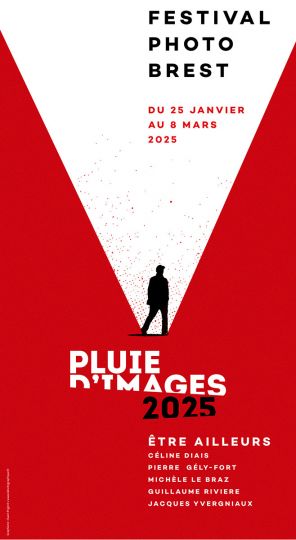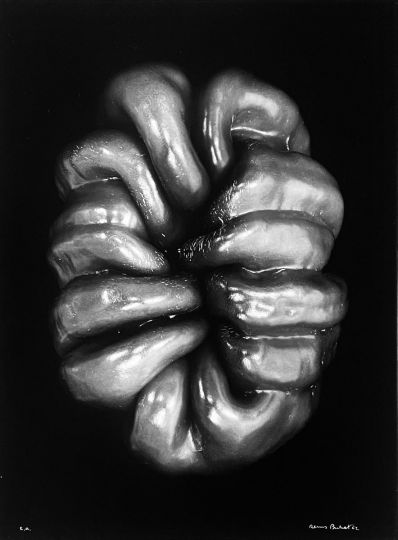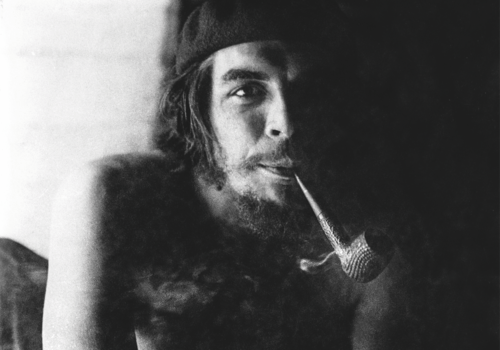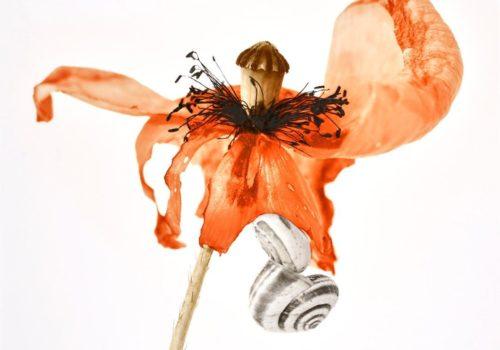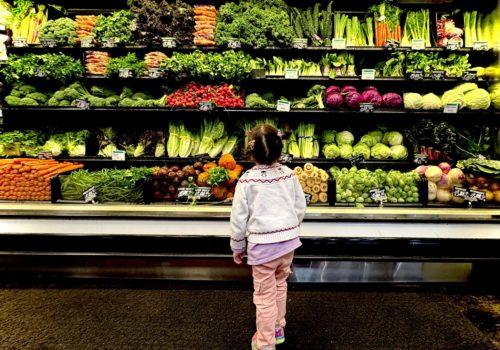Galerie m Bochum‘s selection
. Thomas Florschuetz
Blurred patterns of colors and shapes feature in the images of Thomas Florschuetz’ series Untitled (K52). These photographs show the view directly out of the artist’s frozen and slowly thawing studio window. In some pictures the ice forms a craquelure pattern on the glass, or the view outside through the window shimmers indistinctly through a fogged surface. Outside and inside condense atop the glass, like on a ground glass screen. Florschuetz uses the same detail of the window for all images in the series. Because the shots were taken within a relatively short period of time, small but distinct changes are visible, unfurling a visual spectrum that ranges from abstract surface and monochrome gradient to dimly adumbrated spatial contours.

